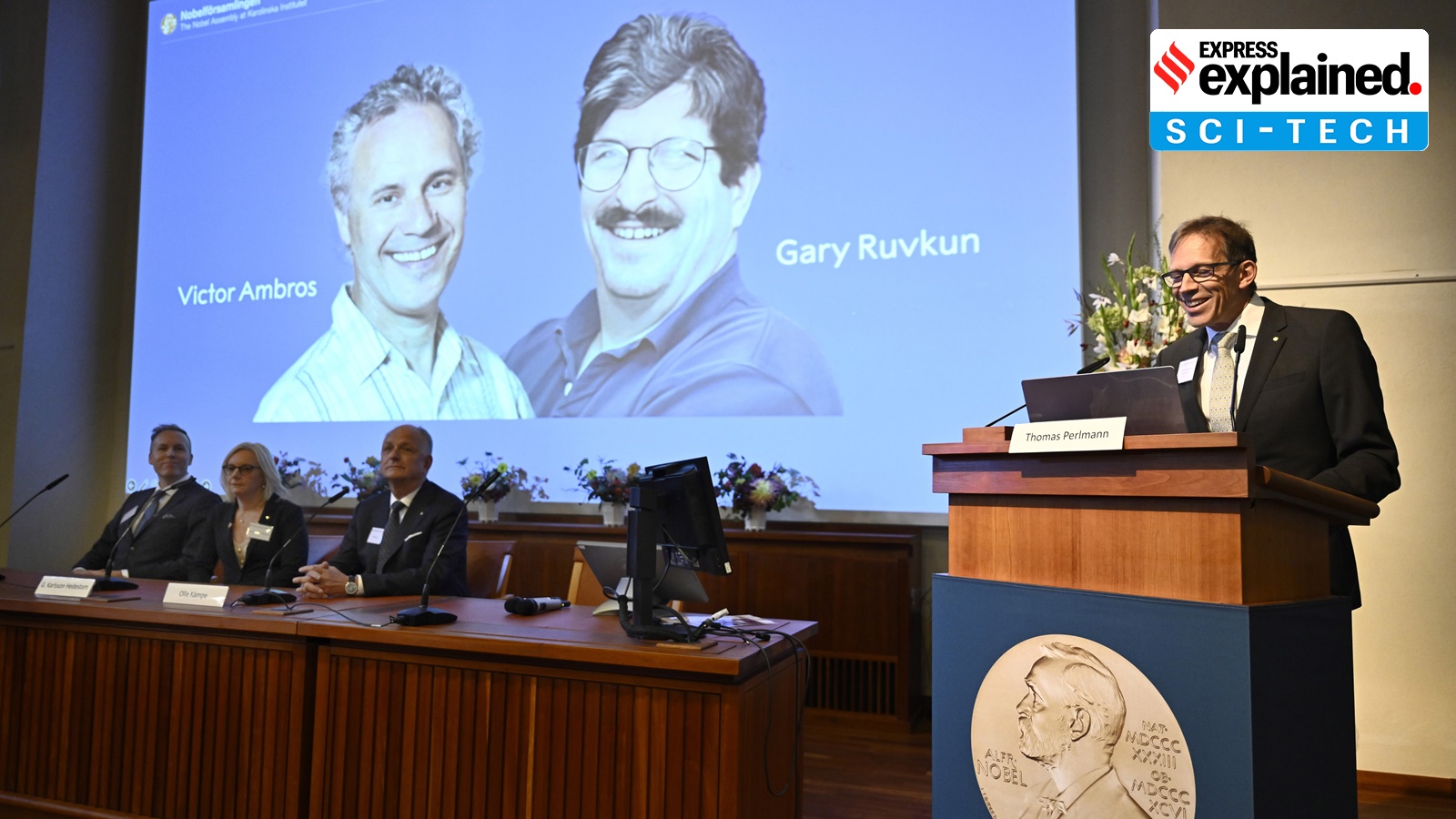 |
|
The 2023 Nobel Prize in Physiology or Medicine was awarded to Victor Ambros and Gary Ruvkun for their groundbreaking discovery of microRNA and its pivotal role in post-transcriptional gene regulation. This discovery has revolutionized our understanding of how genes are controlled within cells, leading to a deeper comprehension of fundamental biological processes and opening up new avenues for therapeutic intervention.
MicroRNA, a class of small RNA molecules, act as master regulators of gene expression. Their primary function is to bind to messenger RNA (mRNA), which carries genetic information from DNA to ribosomes, where proteins are synthesized. This binding can either suppress the translation of mRNA into protein or trigger its degradation. In essence, microRNAs fine-tune the production of proteins, ensuring that cells produce the appropriate levels of specific proteins at the right time and place.
Ambros and Ruvkun's journey to this Nobel Prize started in the 1980s when they were both postdoctoral fellows in the laboratory of Robert Horvitz at MIT. They were studying the tiny roundworm Caenorhabditis elegans, a model organism that has been instrumental in unraveling many biological mysteries. Their research focused on two mutant strains of worms, lin-4 and lin-14, which exhibited defects in the timing of genetic programs during development. Ambros's work revealed that the lin-4 gene produced an unusually short RNA molecule, which was inhibiting lin-14. This turned out to be microRNA. Ruvkun's studies on lin-14 further cemented this discovery, demonstrating that the regulation of gene expression was occurring at a later stage in the process, through the shutdown of protein production.
The significance of their discovery extended beyond the roundworm. Subsequent research has established that microRNAs are ubiquitous in all multicellular organisms, including humans. This realization has led to a surge in research aimed at understanding the role of microRNAs in various physiological processes, including development, immunity, and disease. Aberrant regulation of microRNA activity has been implicated in numerous diseases, including cancer, diabetes, and autoimmune disorders.
The work of Ambros and Ruvkun has laid the foundation for a new era of research into microRNAs. Their discovery has not only provided fundamental insights into gene regulation but has also opened up exciting possibilities for the development of novel therapeutic strategies. For instance, microRNAs have emerged as potential targets for drug development, particularly for cancer treatment. By modulating the activity of specific microRNAs, researchers are exploring new avenues for treating diseases that have been resistant to conventional therapies.
The Nobel Prize in Physiology or Medicine is a testament to the power of basic scientific research to advance our understanding of life and to pave the way for innovative solutions to human health challenges. Victor Ambros and Gary Ruvkun's discovery of microRNA has not only earned them the highest scientific honor but has also inspired generations of researchers to delve deeper into the intricate world of gene regulation, with the ultimate aim of improving human health and well-being.
Source: Nobel Prize for Medicine out: What exactly have the winners worked on
